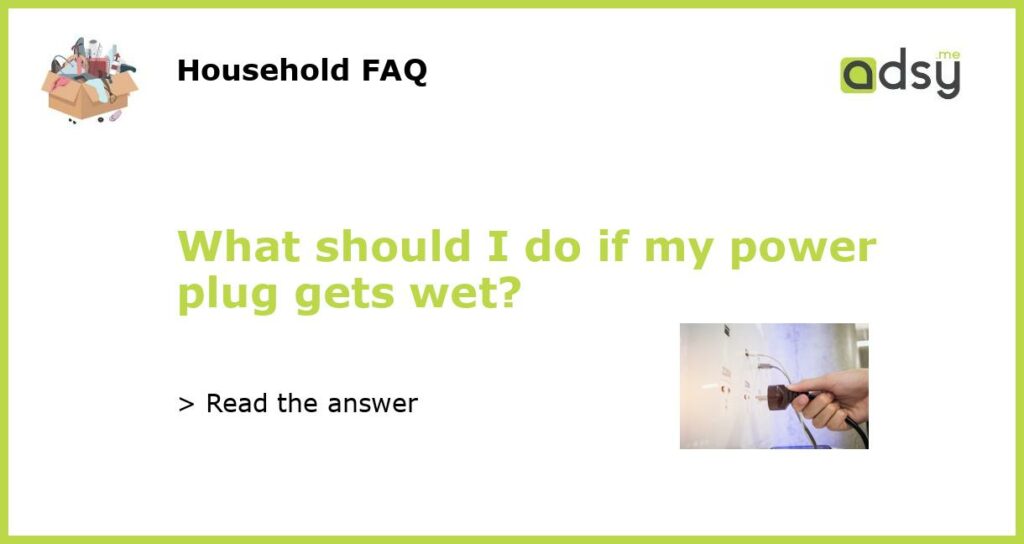What to do if your power plug gets wet
Unplug the power immediately
If your power plug gets wet, the first thing you should do is unplug it immediately. This is important to ensure your safety and prevent any potential accidents or electrical hazards. Wet plugs can cause short circuits, electrocution, or even fires. By disconnecting the power supply, you minimize the risk of further damage or harm.
Dry the plug properly
Once you have unplugged the power, it is crucial to dry the plug properly. Start by using a dry cloth or towel to gently wipe away any visible moisture on the surface. Do not use a wet cloth or towel as this may worsen the situation. You can also use a hairdryer on a low setting to blow dry the plug. However, be cautious not to overheat the plug or expose it to excessive heat, as this can cause damage.
Avoid using the plug until it is completely dry
After drying the plug, it is essential to wait until it is completely dry before using it again. Even if the plug appears dry on the outside, there could still be moisture trapped internally. Plugging in a wet or damp power plug can lead to electrical malfunctions, shock, or potentially damage your electronic device. It is better to be patient and ensure the plug is completely dry before reconnecting it.
Inspect the plug for any damage
While drying the plug, take the time to inspect it for any damage. Look for signs of corrosion, burning, or melted areas. If you notice any of these issues, it is best to replace the plug entirely. Damaged plugs can be hazardous and may not provide a secure connection for your devices. It is better to invest in a new plug to ensure the safety of your electrical appliances.
Contact a professional if necessary
If you are uncertain about the damage or have concerns about the safety of the plug, it is advisable to contact a professional electrician. They can assess the situation, provide expert guidance, and address any potential risks or issues. It is always better to be safe than sorry when it comes to electrical matters, so don’t hesitate to seek professional help if needed.






